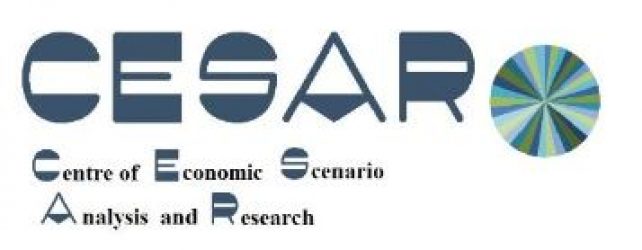CESAR Team

Prof. Dr. Kurt Kratena, PhD in Economics from the University of Economics and Business, Vienna (1988). In 2008, he defended his habilitation thesis at the University of Klagenfurt.
He worked at the Federal Chamber of Labour of Austria (1986-1992) and had scholarships at the Autonomous University of Madrid (1990-1991) and via the EU exchange of researchers program (SPES) at the University of Valladolid (1992-1993). Research visits were made more recently at MIT and FEEM, Italy (in 2006), Harvard University/ Professor Dale Jorgenson (2011), REAL at the University of Illinois (2013) and the JRC / IPTS in the European Commission (2015).
As researcher at the Austrian Institute of Economic Research (WIFO), from 1993, the main objective of Dr. Kratena has been the development and application of quantitative methods, especially input-output modeling.
He has also participated in a number of international research projects, in the fifth, sixth and seventh framework program of the EU Commission, all dedicated to modeling the relationship and interdependencies between economy, energy and environment. Between 2008 and 2011, he has developed a new dynamic inter-regional (EU-27) econometric input-output model (FIDELIO) for the JRC / IPTS in the EU Commission.
https://de.wikipedia.org/wiki/Kurt_Kratena
Contact: kurt.kratena@cesarecon.es

Mag. Andrea Stocker, born 1972, studied “Environmental System Sciences” and Economics at the Karl-Franzens-University Graz (Austria). In 2000 and 2001 she joined the Department of Economics of KFU Graz as research fellow. After that she was involved in several research projects (e.g. for BMLFUW and OeNB Jubiläumsfonds). She joined the Sustainable Europe Research Institute (SERI) in 2003 and specializes in the field of ecological economic modelling and input-output-analysis. From 2008 to 2019 she was head of the SERI research group “Integrated modelling and policy”. In 2020, she has started to work as free researcher in the field of sustainable development.
Her main research interests are integrated ecological-economic modelling, sustainability indicators, policy integration and scenario analysis as well as renewable energies and climate change. Know how in web design and content management systems.

DI Anton Scharner M.S. in Engineering Physics from the University of Technology, Vienna
Anton Scharner specialized in probability theory of complex systems. From 1996 – 2015 he was at Alcatel (later Thales) responsible for the implementation of product analyses concerning reliability, safety, risk and life cycle cost. In addition to that he developed a probabilistic analysis program for Group-wide deployment and established the automation of empirical field data. As part of an international standardization group he was playing a leading role in the development of guidelines and standards for the safety of railway applications.
At CESAR, Anton Scharner is responsible for the implementation of large econometric input-output models. That comprises the design of implementation of the model equations into the modelling software, the analysis of scenarios and the user interface in terms of modelling inputs as well as results. He has a long-term experience in performing complex system analysis.
Contact: anton.scharner@cesarecon.at





